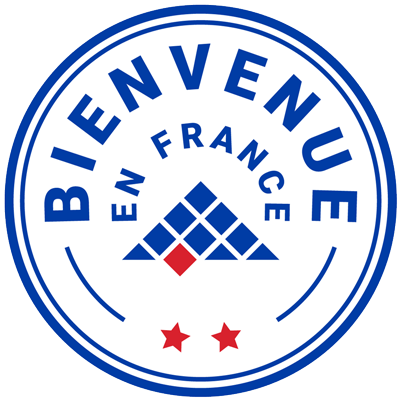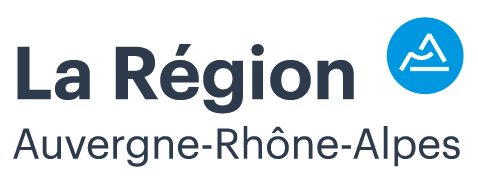Our school offers two Bachelor / License level courses and one Engineer program, open to international students for inter-university exchange semesters.




Modules taught in English
Here, the description of the English-taught courses you can attend at ESTBB.
EL-IN1 : Scientific written communication
| Cycle | Semester | Credits | Language | L | EC | LC | T |
| 1st cycle | 5 or 6 | 10 ECTS | English | / | / | / | 30h |
L: Lectures • EC: Exercise classes • LC: Laboratory classes • T: Tutorial
Course learning goals and description
Science is not only lab work, it’s also how you will communicate on your results. Come and face the problem of the Writer’s block with the help of an ESTBB school tutor.
A specific topic is selected by the student jointly with a school tutor. Student will therefore provide three different types of scientific communication on this topic:
- a scientific article-review on the topic for scientist
- a press article for all audience
- a poster
Prerequisite
/
Evaluation
Written productions and poster presentation
EL-IN2: Research Project
| Cycle | Semester | Credits | Language | L | EC | LC | T |
| 1st cycle | 5 or 6 | 5 to 10 ECTS | English | / | / | / | 30h |
L: Lectures • EC: Exercise classes • LC: Laboratory classes • T: Tutorial
Course learning goals and description
Wet lab work can only be learned in a lab! Join one of our Researcher in his/her struggle to decipher a specific scientific question.
Be careful, number of positions is limited to the number of Researchers capable to follow your progress. It is variable from one year to another.
During this module, student will have the opportunity to perform a research project from the literature studies, preparation of the experimentation, to the bench work and analyses of the results.
Project, individual study plan, timeline and objectives will be discussed with the supervisor.
Prerequisite
/
Evaluation
Written report and final oral presentation
EL-IN3: Epigenetics
| Cycle | Semester | Credits | Language | L | EC | LC | T |
| 1st cycle | 5 or 6 | 5 ECTS | English | / | / | / | 30h |
L: Lectures • EC: Exercise classes • LC: Laboratory classes • T: Tutorial
Course learning goals and description
.
Learn at your own pace with this online class the fascinating field of Epigenetics, because nothing is written in stone and environment is shaping your genome.
The objectives of the course are:
-To understand what is epigenetics, the different components and mechanisms of the epigenome: chromatin organization, histone modifications, DNA methylation, polycomb repression and non-coding RNAs.
-To acquire knowledge in Epigenetic regulation during normal development and also the implication of an epigenetic dysregulation in a variety of diseases including cancer and behavioral diseases.
-To learn what tools and technologies are performed to decode the epigenome.
-To be introduced to CRISPR mediated epigenome editing and its potential applications.
Prerequisite
Genetic engineering 1, genetics
Evaluation
Moodle tests at the end of each classes and coursework
EL-IN4: Ecology
| Cycle | Semester | Credits | Language | L | EC | LC | T |
| 1st cycle | 5 or 6 | 5 ECTS | English | / | / | / | 30h |
L: Lectures • EC: Exercise classes • LC: Laboratory classes • T: Tutorial
Course learning goals and description
It is first essential to understand our world before becoming a positive actor to face environmental crisis.
At the end of this course, the student will be able to understand and analyze the ecological issues of the 21st century.
The student will be introduced to ecological theory, follow a presentation and analysis of mathematical models and sampling strategy in ecology.
A large number of examples will be proposed to better understand:
-the interface between biodiversity and public health and veterinary issues;
-relations between the environmental crisis of the 21st century and human and animal health
Prerequisite
/
Evaluation
Moodle tests at the end of each classes and coursework
EL-IN5: Genome Editing and engineering
| Cycle | Semester | Credits | Language | L | EC | LC | T |
| 1st cycle | 5 or 6 | 5 ECTS | English | / | / | / | 30h |
L: Lectures • EC: Exercise classes • LC: Laboratory classes • T: Tutorial
Course learning goals and description
Let’s talk about an extremely hot topic: how to modify a genome?
The goal of this course is to introduce students to genome editing and engineering. Different examples will be used to illustrate: 1/ why, editing a genome is never done without a clear and ethical objective(s), and 2/ how, the molecular biology tools to do it properly. From random transgene insertion, to a specific genetically modified mouse model, to the famous genome editing tools (ZFN, TALEN and of course CRIPR/Cas), the major ways to produce a genetically modified organism will be discussed.
Prerequisite
Basis in Genetic and Molecular biology
Evaluation
Moodle tests at the end of each classes and coursework
EL-IN6: Cancer Biology
| Cycle | Semester | Credits | Language | L | EC | LC | T |
| 1st cycle | 5 or 6 | 5 ECTS | English | / | / | / | 30h |
L: Lectures • EC: Exercise classes • LC: Laboratory classes • T: Tutorial
Course learning goals and description
Cancer is a leading cause of death worldwide. Therefore, understanding complex mechanisms leading to cancer, and knowing how this problem might be addressed are keys knowledge if you want to be involved in this fight.
Student should be able at the end of this online class:
-to define Cancer: classification, origin and identification
-to understand biology behind cancer apparition and development
-to describe the role of the guardian of the genome: TP53, and determine the consequences of TP53 “loss” or mutation
-to learn about new ways to diagnose Cancer: their advantages but also their limits
Prerequisite
Basis in Genetic and Molecular biology
Evaluation
Moodle tests at the end of each classes and coursework
AIS5IN1: Cell culture level 2
| Cycle | Semester | Credits | Language | L | EC | LC | T |
| 1st cycle | 5 | 10 ECTS | English | 2h | / | 43h | / |
L: Lectures • EC: Exercise classes • LC: Laboratory classes • T: Tutorial
Course learning goal
You want to know how to perform cell culture and use it as a model in Research? Come, and join our Assistant Engineer students into this journey! In group of maximum 12 students, you will work with one French student: he/she will learn from you, and you will learn from him/her.
In this practical, students will work in pair during 4 weeks in a situation close to a real-work environment. They will be asked to follow detailed protocols, to refer to it and organize their work accordingly.
In these 4 weeks practical, they will learn:
-how to maintain two mouse embryonic fibroblasts cell lines (divide them, count them, freeze and thaw them).
-how to do a gene reporter assay: prepare a plasmid (pRGCdeltaFosLacZ), transfect cell lines with the plasmid, and induce the transfected gene. The reporter gene under the specific promoter being LacZ, its activity will be detected by looking at beta-galactosidase activity.
-how to follow the effect of a treatment on the protein level (tumor suppressor protein p53 being our protein of interest during this practical) : cell treatment, protein extraction and check of the protein level by Western blotting.
In parallel to technical lab skills, they will learn:
-to prepare their experiment before the pratical session
-to work collectively under strict Good Cell Culture and Good Lab Practices (GCCP and GLP) rules
-the principle of each techniques used
-to critically analyze their results
-to write a report as a scientific communication
Prerequisite
Cell biology, basic knowledge in molecular biology
Evaluation
Coursework, written report, test on Moodle
SVHS5UE01-IN: Applied Immunology
| Cycle | Semester | Credits | Language | L | EC | LC | T |
| 1st cycle | 5 | 5 ECTS | English | 28h | 12h | 8h | / |
L: Lectures • EC: Exercise classes • LC: Laboratory classes • T: Tutorial
Course learning goal
At the end of this course, student will:
-Know how to describe the different immune responses depending on the pathogen.
-Know how to describe the mechanisms involved in the development of lymphocytes.
-Know how to describe the involvement of the immune system in the development of various pathologies.
-Discover the treatments and therapies used to treat or prevent these pathologies.
Prerequisite
Cell biology, Immunology 1
Evaluation
Written exams and coursework
SVHS5UE01bis-IN: Ecology
| Cycle | Semester | Credits | Language | L | EC | LC | T |
| 1st cycle | 5 | 5 ECTS | English | 30h | 12h | 8h | / |
L: Lectures • EC: Exercise classes • LC: Laboratory classes • T: Tutorial
Course learning goal
At the end of this course, the student will be able to understand and analyze the ecological issues of the 21st century.
The student will be introduced to ecological theory, follow a presentation and analysis of mathematical models and sampling strategy in ecology. A large number of examples will be proposed to better understand:
-the interface between biodiversity and public health and veterinary issues;
-relations between the environmental crisis of the 21st century and human and animal health
Prerequisite
/
Evaluation
Written exams and coursework
SVHS5UE02-IN: System Biology
| Cycle | Semester | Credits | Language | L | EC | LC | T |
| 1st cycle | 5 | 5 ECTS | English | 30h | 8h | / | 12h |
L: Lectures • EC: Exercise classes • LC: Laboratory classes • T: Tutorial
Course learning goal
Systems biology is both a scientific field and a relatively recent paradigm which consists in studying organisms as a whole. It can be approached by a scientific approach since it concerns the study of the interactions between the components of biological systems and their action in the function and behavior of this system. It can also be approached by a philosophical approach because it represents a "holistic" approach opposed to the "reductionism" used for a long time in life sciences. Following this module will allow the student to place the scientific knowledge acquired since the beginning of his schooling in a complex context, to approach their analysis in a global way by mathematical methods and to have access to a new way of reasoning in biology. The module will also provide new knowledge regarding several areas of biology. In addition to the classic knowledge checks, group bibliographic work will be required to allow the student to implement what he has learned.
Prerequisite
Biology 1
Evaluation
Written exams and coursework
INS6ETBS02-IN: Genetic Engineering
| Cycle | Semester | Credits | Language | L | EC | LC | T |
| 1st cycle | 6 | 5 ECTS | English | 10h | / | 24h | / |
L: Lectures • EC: Exercise classes • LC: Laboratory classes • T: Tutorial
Course learning goal and description
The aim of the course is to provide student with knowledge in the different biotechnological tools to study and modify the genetic material of a living organism.
Following a specific project, students will be guided to find, and therefore understand, the right Molecular Biology tools to be able to validate or not a hypothesis.
Laboratory classes:
During the practical, students will perform the experiments they discuss during the lecture. From the detection of a specific mutation, to the plasmid construction in order to produce a recombinant DNA useful to study the function of the mutated form of the protein of interest.
1: Comparison of different method of DNA quantification
2: PCR-RFLP and diagnostic of a point of mutation
3: DNA cloning, screening and validation, and plasmid production
Prerequisite
Molecular Biology 1
Evaluation
Written exam and coursework (report, exercises, participation)
INS6ETBS01-IN: Advanced Immunology
| Cycle | Semester | Credits | Language | L | EC | LC | T |
| 1st cycle | 6 | 5 ECTS | English | 10h | 8h | 16h | / |
L: Lectures • EC: Exercise classes • LC: Laboratory classes • T: Tutorial
Course learning goal and description
The aim of this course is to provide the student current and up-to-date knowledge within areas of cellular and molecular immunology.
The student will be able to mobilize this theoretical knowledge in immunology to choose immunological methods adapted to the biotech processes, and to optimize biotechnology protocols using immunology tools.
Keywords: vaccination, recombinant antibodies, autoimmunity and hypersensibility
Laboratory classes:
Test of adjuvants in term of efficacity to stimulate the immune response, using techniques of cell culture, ELISA, and RT-qPCR.
- Pre-Clinical Evaluation of the Nanoliposomal antiPCSK9 Vaccine in Healthy Non-Human Primates – adapted from Abbas Momtazi-Borojeni et al., Vaccines, 2021
- Lipid A analog CRX-527 conjugated to synthetic peptides enhances vaccination efficacy and tumor control – adapted from Tondini et al., npj vaccines, 2022
Prerequisite
Basic knowledge in immunology (immune responses and antibodies)
Evaluation
Written exam and coursework
INS6ETBS03-IN: Project: European Biotechnology
| Cycle | Semester | Credits | Language | L | EC | LC | T |
| 1st cycle | 6 | 5 ECTS | English | 10h | / | / | 30h |
L: Lectures • EC: Exercise classes • LC: Laboratory classes • T: Tutorial
Course learning goal and description
Based on specifications defined by a sponsor, the students will have to carry out, in teams, a study of published research work on major European and governmental orientations, European and specific regulations related to a problem in the context of biotechnologies for a biotech established in a country of the European Union.
This targeted and in-depth scientific and/or technological and/or geopolitical state of the art (advantages, disadvantages, etc.) must allow the sponsor, for example, to:
– Validate an R&D orientation;
– Have a global vision of the subject (scientific articles, studies, publications, patents or even scientific conferences);
– Detect emerging technologies;
– Find a solution to a technological obstacle;
– Find new alternative tracks.– Validate an R&D orientation;
– Have a global vision on the subject by identifying and critically analyzing relevant scientific articles, studies, publications, patents or scientific conferences;
– Detect emerging technologies;
– Find a solution to technological limits; – Find new alternative methods
Prerequisite
/
Evaluation
Written report as a review and an oral presentation
INS6ETSTI02-IN: Cell technologies
| Cycle | Semester | Credits | Language | L | EC | LC | T |
| 1st cycle | 6 | 5 ECTS | English | 10h | / | 30h | / |
L: Lectures • EC: Exercise classes • LC: Laboratory classes • T: Tutorial
Course learning goales and description
The goal is to provide students with theoretical and practical knowledge of the various cellular technologies available today.
At the end of this course, student will:
- Understand the challenges raised by cellular technologies
- Understand any scientific document dealing about cell tech
- Be familiar with most of applications using cell tech
- Be aware of ethical aspects raised by cell tech
- Behave in the cell culture lab and be able to grow cells in Good Cell Culture Practice
- Choose appropriate experiments to answer a problematic and design an experimental protocol
- Report results in scientific documents
Asynchronous work
Present one example of biotherapy based on cellular technologies with a poster (Technological aspects, Clinical development, Costs, Bioethical aspects)
Laboratory classes:
Part I : Preparation and monitoring of a primary PBMC culture (9,5 hrs)
Objectives :
oSterile preparation of primary cells from blood sample
oCultivate primary lymphocytes for 5 days
oDetermine the best conditions to maintain and amplify lymphocytes B and T
oAnalyze by flow cytometry the evolution of the different cell populations
Part II : Protocol development for the production a recombinant protein in a mammalian system (20,5 hrs)
Objectives :
oMaintain cell lines in culture for 2 weeks
oChoose a problematic and design an experimental procedure to answer it
oDevelop experimental conditions to optimize the production of a recombinant protein
oDiscuss your results to choose the best conditions according to different parameters
Prerequisite
Cell biology
Evaluation
Written exams and coursework
INS6ETSTI03-IN: Bioinformatics
| Cycle | Semester | Credits | Language | L | EC | LC | T |
| 1st cycle | 6 | 5 ECTS | English | 6h | 24h | 10h | 10h |
L: Lectures • EC: Exercise classes • LC: Laboratory classes • T: Tutorial
Course learning goals and description
The overall objective is to introduce students to bioinformatics.
This powerful tool is essential to acquire, as it will be the first step for project design and results analysis.
Therefore, students will learn how to decipher the vast amounts of biomedical and genomic data using online tools that will be relevant to their work in the coming decades (from nucleic acid to protein, primary sequences to look for structures and functions)
They will also understand the interest of phylogenetics and comparative genomics.
Prerequisite
Genetic engineering 1, genetics
Evaluation
Practical examinations: 2h on computer
Written examinations and continuous assessment
INS6ETSTI04-IN: Industrial Microbiology
| Cycle | Semester | Credits | Language | L | EC | LC | T |
| 1st cycle | 6 | 5 ECTS | English | 10h | / | 30h | / |
L: Lectures • EC: Exercise classes • LC: Laboratory classes • T: Tutorial
Course learning goals and description
The aim of the course is to provide theoretical and practical knowledge of biotechnological processes and principles that underline the microbial productions, fundamental in various industrial sectors like biomedical, pharmaceutical, food, energy, etc.
As a learning outcome, student will be able :
-to understand and model the behavior of microorganisms in bioreactors
-to Implement and optimize a viral production process in a bioreactor
Laboratory classes:
Setting up a practical project of microorganism production in a bioreactor and application in the laboratory
1. Bibliography research for the optimization of the production of the molecule using microorganisms in bioreactors. (8h)
2. Presentation of the results (1 h)
3. Redaction of a material list for the pratical (1h)
4. Application in pratical in the laboratory (20h)
5. Redaction (2h) with bibliography research and laboratory results
Prerequisite
Process engineering base, unit operation, heat and material transfer, industrial microbiology (base)
Evaluation
Coursework
AIS6UE01-IN: Advanced genetic engineering: Molecular Biology, Virology, Cancer Biology
| Cycle | Semester | Credits | Language | L | EC | LC | T |
| 1st cycle | 6 | 5 ECTS | English | 36h | / | / | / |
L: Lectures • EC: Exercise classes • LC: Laboratory classes • T: Tutorial
Course learning goals and description
Molecular biology
Molecular biology is the key to all biotechnologies currently developed. During this course, we will discuss methods and techniques of molecular biology using concrete examples. In addition, we will provide a theoretical basis, necessary to understand experiments and concepts used in laboratory projects.
The topic of genome edition will be treated and we will focus on CRISPR/Cas9. The possibilities, limitations and ethics of gene technology will be discussed.
Virology
To acquire knowledge in virology to be able to describe:
-the structure, morphology and life cycle of viruses
-viral vectors and their applications
-the structure and life cycle of Influenza virus and Hepatitis B virus
-cellular transformation by RNA and DNA viruses and links to cancer
-emerging virus and human health
Cancer biology
This course is an introduction to cancer biology. The definition of cancer, the cellular pathways affected the molecular mechanisms and some of the important genes and proteins will be discussed.
Prerequisite
Genetic engineering level 1 and 2
Evaluation
Written exams and coursework
AIS6UE01-IN: Bioprocesses
| Cycle | Semester | Credits | Language | L | EC | LC | T |
| 1st cycle | 6 | 5 ECTS | English | 12h | / | 31h | / |
L: Lectures • EC: Exercise classes • LC: Laboratory classes • T: Tutorial
Course learning goales and description
At the end of this course, student will:
- Have a global vision of bioprocesses
- Know fermentation processes (growth kinetics, biological materials, bioreactors)
- Understand the notions of recovery, separation and purification
Prerequisite
Microbiology (base)
Evaluation
Written exams and coursework

Julia HELLER
Welcomed to ESTBB in 2024-2025
“Spending a semester studying at ESTBB was absolutely amazing! Throwing myself into the cultural immersion that France offers was a fun challenge to take on!! The city of Lyon is simply wonderful – It welcomes you with open arms at every corner! Everyone I met along the way during these months will always have a special place in my heart! Totally worth it!!”
BRAZILIAN STUDENT – SEMESTER 1 2024-2025
